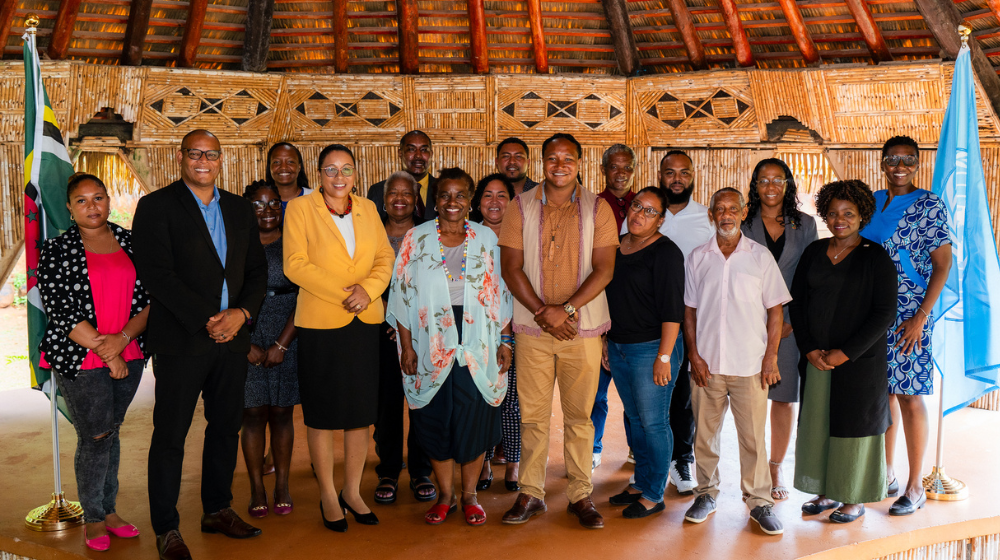Dr. Natalia Kanem, UNFPA Executive Director, visited the Kalinago Barana Autê in Dominica on May 23, 2024. Her visit focused on enhancing support for the Kalinago community and reaffirming UNFPA’s commitment to improving sexual and reproductive health and rights for indigenous peoples.
Dr. Kanem praised the Government of Dominica for integrating indigenous rights into the national climate resilience plan. She commended the progress towards UNFPA’s three transformative goals: zero maternal deaths, zero unmet need for family planning, and zero gender-based violence and harmful practices.
She expressed gratitude to Honourable Minister Frederick for hosting the visit, and to Honourable Minister Dr. McIntyre and Kalinago Chief Mr. Sandford for their presence. Dr. Kanem also acknowledged Her Excellency Sylvanie Burton, President of Dominica, for her support of the International Conference on Population and Development (ICPD) goals.
This year UNFPA celebrates 30 years since the ICPD, a 1994 meeting in Cairo where 179 governments adopted a revolutionary Programme of Action and called for women’s reproductive health and rights to take center stage in national and global development efforts. Specifically, the Programme of Action called for all people to have access to comprehensive reproductive health care, including voluntary family planning, safe pregnancy and childbirth services, and the prevention and treatment of sexually transmitted infections. It also recognized that reproductive health and women’s empowerment are intertwined, and that both are necessary for the advancement of society.
“Our engagement today reflects the spirit of the ICPD promise,” Dr. Kanem said. “It is an honor to listen and strengthen our ties with the Kalinago community and local authorities.”
In closing, she emphasized the impact of the SIDS conference that was held later that month in Antigua and Barbuda in addressing climate change-related challenges.
Engaging with indigenous peoples is crucial for UNFPA as it ensures that their unique needs and perspectives are included in global efforts to advance sexual and reproductive health and rights. By collaborating closely with indigenous communities, UNFPA not only respects and upholds their cultural values but also addresses disparities in access to essential services. This engagement empowers indigenous peoples to actively participate in shaping solutions that are both culturally appropriate and effective. Ultimately, it strengthens the overall impact of UNFPA’s initiatives and contributes to achieving equitable and inclusive progress in global health and human rights.


